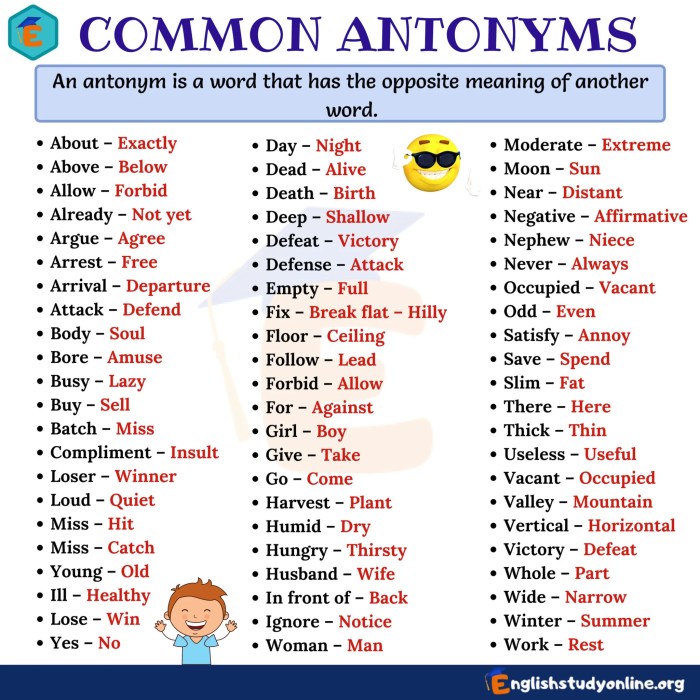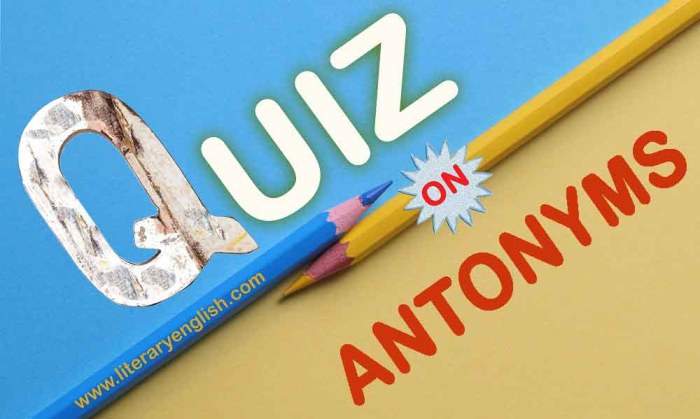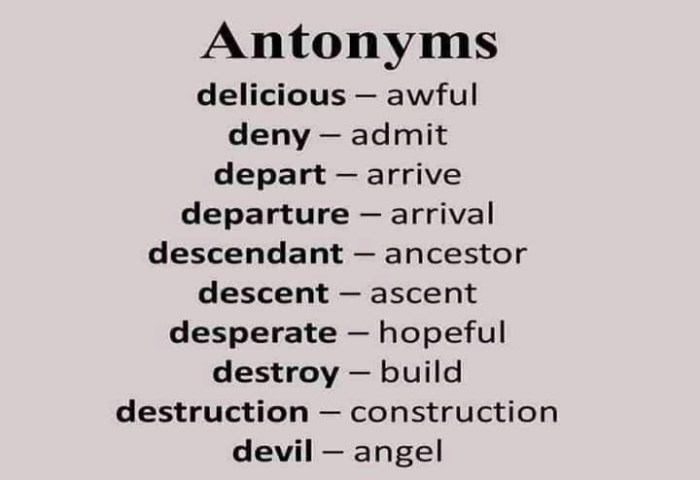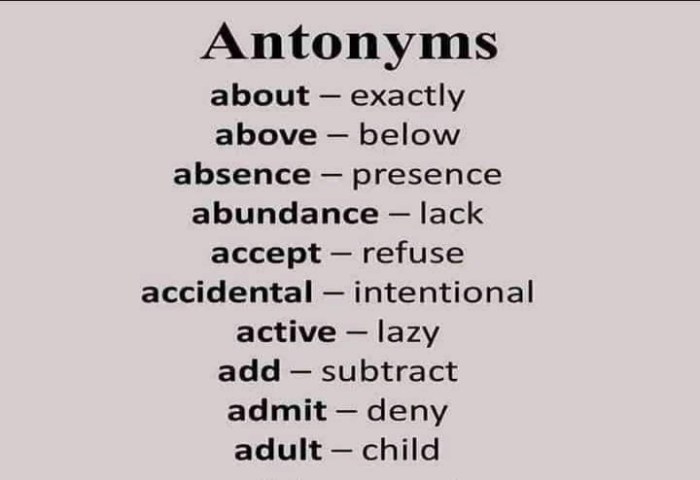Escribe el antónimo de estas palabras o expresiones – In the realm of language, understanding antonyms is crucial for effective communication and precise expression. Antonyms, words that express opposite meanings, play a pivotal role in shaping our ability to convey ideas clearly and create impactful writing.
This comprehensive guide delves into the concept of antonyms, exploring their significance, methods for generating them, and practical applications in language. Through engaging examples and insightful analysis, we will uncover the power of antonyms and their indispensable role in enhancing our linguistic skills.
Antonyms: Exploring Words with Opposite Meanings

Antonyms are words or phrases that express opposite or contrasting meanings. Understanding antonyms is crucial for effective communication and language comprehension.
Antonyms play a vital role in shaping our understanding of language and the world around us. They allow us to convey complex ideas and emotions precisely and concisely.
Methods for Generating Antonyms
Identifying antonyms involves a systematic approach. One effective method is to use a dictionary or thesaurus. These resources provide comprehensive lists of words and their corresponding antonyms.
Another technique is to analyze the structure of words. Many antonyms are formed by adding prefixes or suffixes that reverse the meaning of the root word. For instance, “happy” and “unhappy” are antonyms because the prefix “un-” negates the positive connotation of “happy”.
Examples of Antonyms
| Word | Antonym | Part of Speech | Example Sentence |
|---|---|---|---|
| Good | Bad | Adjective | The good news was overshadowed by the bad. |
| Active | Passive | Adjective | An active lifestyle is healthier than a passive one. |
| Rich | Poor | Adjective | The rich get richer, while the poor get poorer. |
| Hot | Cold | Adjective | The hot summer days contrasted with the cold winter nights. |
Applications of Antonyms
Antonyms are versatile tools that enhance language and communication. They are used in a wide range of contexts, including:
- Creating balance and contrast in writing
- Emphasizing specific ideas or emotions
- Avoiding repetition and monotony
- Clarifying complex concepts
Conclusion, Escribe el antónimo de estas palabras o expresiones
Antonyms are indispensable elements of language that enrich our vocabulary and enable us to express ourselves effectively. Understanding and utilizing antonyms empowers us to communicate with precision and nuance, making our words more impactful and our ideas more compelling.
We encourage you to continue exploring the world of antonyms and discover their vielfältig uses in language and literature.
FAQ Guide: Escribe El Antónimo De Estas Palabras O Expresiones
What is the definition of an antonym?
An antonym is a word that expresses the opposite meaning of another word.
How can I identify antonyms?
There are several methods for identifying antonyms, including using a dictionary or thesaurus, analyzing word structure, and considering context.
What are some examples of antonyms?
Common examples of antonyms include: happy/sad, hot/cold, big/small, love/hate, and many more.


